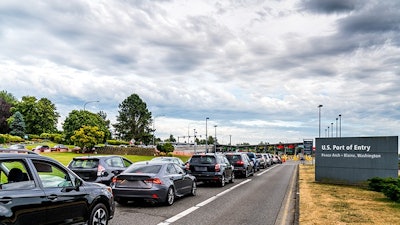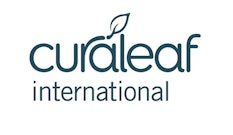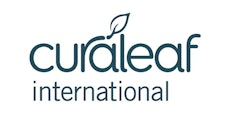
After months of radio silence from U.S Customs and Border Protection (CBP), a Seattle-area law firm has filed a civil complaint to obtain agency records concerning CBP’s policy of denying foreign citizens entry to the U.S. due to any involvement with the cannabis industry. It’s an issue that’s been splashed across major newspaper headlines for months, and CBP has yet to explain how it derives the authority to enact this policy.
This lawsuit, filed by Davis Wright Tremaine LLP, brings that federal obfuscation into the courtroom by shining a light on the ongoing policy of detaining Canadian citizens who are associated with the cannabis industry. In some publicized cases, Canadian citizens have been given lifetime bans from entering the U.S. for their work with cannabis. The appeal process is costly and time-consuming.
Cannabis Business Times first reported on this issue in July 2018.
Notably, Davis Wright Tremaine filed the lawsuit on its own behalf, keeping its cannabis-related clients distinct from this docket.
“We bring the lawsuit because we’ve got legal cannabis clients on both sides of the border—the Canadian side and the U.S. side—and [CBP has] done a pretty good job of causing problems at the border themselves,” said John McKay, a partner at DWT leading the firm’s government investigations and crisis management group. “I think they purposefully cause confusion and uncertainty at the Canadian border, and our clients want to know what authority do they have for banning Canadians in the legal cannabis industry or threatening to ban Canadians in the legal cannabis industry.”
Cannabis Business Times has had an open FOIA request with CBP since May 7, 2018, seeking much of the same information. The status of this request remains “under agency review,” according to FOIAonline.gov. The estimated date of completion for Cannabis Business Times’ request was June 6, 2018.
“Depending on the agency, it’s not unusual [to return records late],” McKay said. “However, once a lawsuit has been filed—and if the lawsuit is found to have been correctly filed—the agency and the government have to pay attorneys’ fees and costs. … As a former federal prosecutor, I know that agencies don’t want to be in the position of having to pay legal fees for failing to comply. So, I don’t know what their approach is going to be.” (McKay was the U.S. attorney for the Western District of Washington from 2001 to 2006.)
DWT first filed its FOIA request for agency records on Sept. 27, 2018, according to the lawsuit. The estimated date of completion was Oct. 29. Much like Cannabis Business Times’ request, the DWT request seeks “documents which might show why CBP has enacted the policy it has, how it developed that policy, and why it believes the [Immigration and Nationality Act] authorizes it to enact those policies.”
The lawsuit is asking for a judicial order declaring that CBP has violated FOIA by not timely responding to requests and demanding that CBP immediately disclose the requested records.
“In general, there’s a huge amount of interest in what CBP is threatening to do and actually doing with regard to Canadians entering the U.S.,” McKay said. “We think we’re entitled to give our clients good advice, and we want to know what authority [CBP has]. I would say we’re skeptical of their authority for some of the statements they made, particularly with regard to banning people.”
When asked by Cannabis Business Times specifically about the policy outlined here, CBP offered only an unrelated comment last year: “CBP is always concerned about criminal activity at our U.S. borders. CBP officers are the nation’s first line of defense, including prevention of illegal importation of narcotics, including marijuana. U.S. federal law prohibits the importation of marijuana and CBP officers will continue to enforce that law.”
But, of course, illegal international drug trafficking is a much different matter than allowing investors and business owners to travel from one country (where cannabis is legal) to another (where cannabis is illegal on a federal level, but legal on a patchwork state-government level).
"We don't file this lightly in the slightest," McKay said. "As a former U.S. attorney, I believe we gave the agency every opportunity to comply with the law in terms of providing us whatever their claimed authority is. They must have some, or else they're issuing public statements with no legal authority behind them. They're making claims that apply to people's rights—whether they're Canadian or U.S.—and if that's true, then they must have authority. It's either [they have] some authority or they need to shut up, and that apparently is not what they're doing."

























